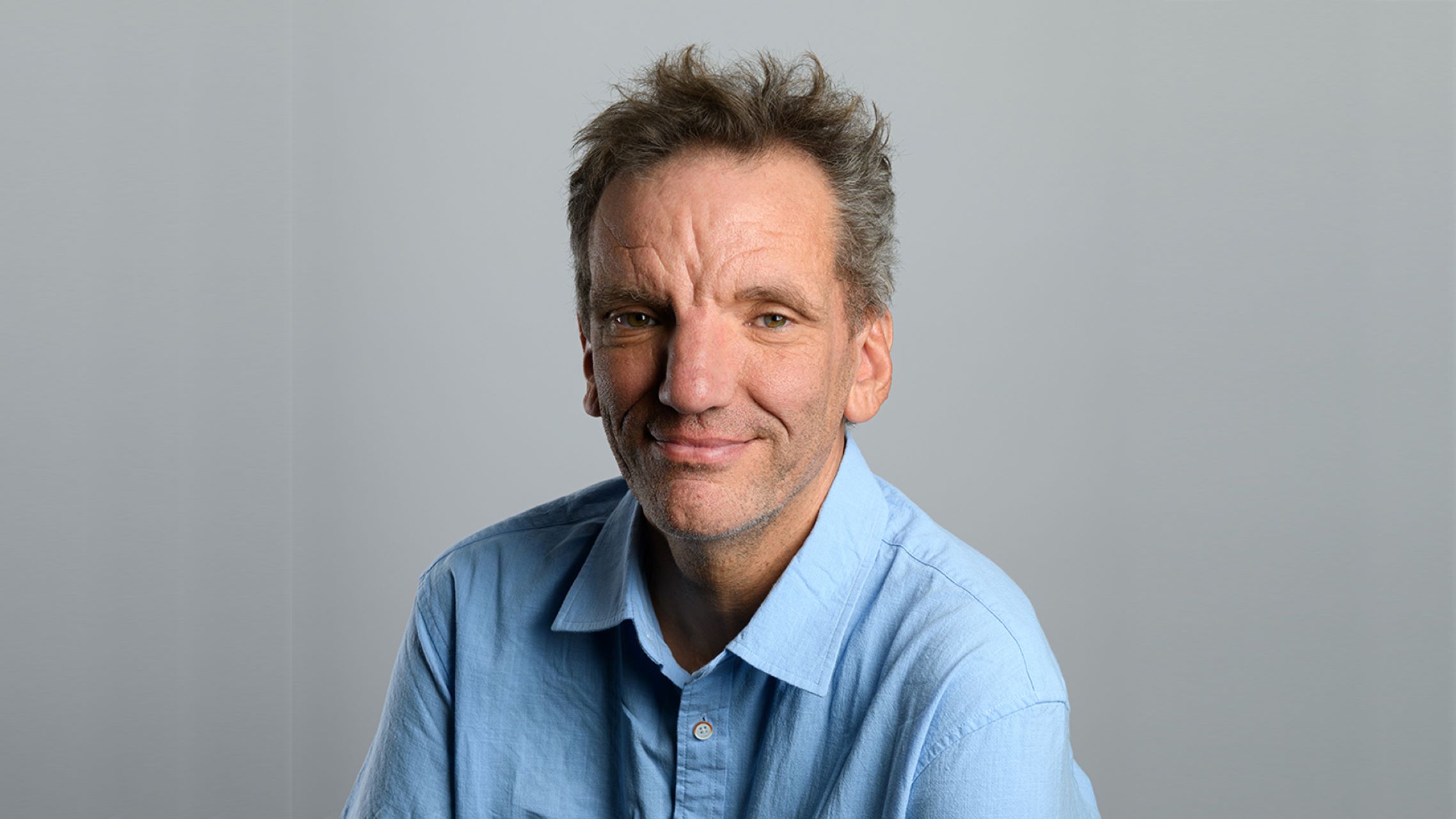Waardenburg Syndrome is a rare genetic disorder that affects many aspects of a person's life, including hearing, vision, and physical appearance. It's not something you hear about every day, but trust me, it's worth understanding. Imagine living in a world where your unique features set you apart—not just in how you look but also in how you experience sound and color. That's the reality for individuals with Waardenburg Syndrome. Henning Wehn, a comedian with a knack for turning the ordinary into the extraordinary, sheds light on this condition in ways that are both informative and relatable.
This syndrome isn't just a medical term; it's a journey. For those affected by it, life comes with its own set of challenges and triumphs. Whether it's navigating the world with partial hearing loss or embracing unique facial features, Waardenburg Syndrome teaches resilience and self-acceptance. And hey, if a comedian like Henning Wehn can find humor and humanity in it, so can we.
Today, we're diving deep into Waardenburg Syndrome, exploring its symptoms, causes, and impact on daily life. We'll also touch on how Henning Wehn has used his platform to raise awareness about rare conditions like this one. So buckle up, folks, because this isn't just an article—it's a conversation starter.
What Exactly is Waardenburg Syndrome?
Waardenburg Syndrome, or WS for short, is a genetic condition that affects about 1 in 40,000 people worldwide. It's named after Petrus Waardenburg, a Dutch ophthalmologist who first described the condition back in 1951. WS isn't just one thing—it's a spectrum of symptoms that can vary widely from person to person. Some folks might experience mild hearing loss, while others could have more pronounced physical features like strikingly blue eyes or a white forelock of hair.
Here's the kicker: Waardenburg Syndrome doesn't just affect one part of the body. It's like a ripple effect that touches the auditory system, pigmentation of the skin, hair, and eyes, and even the structure of the face. Think of it as nature's way of saying, "Hey, let's make you extra unique!"
Types of Waardenburg Syndrome
Did you know there are different types of Waardenburg Syndrome? Yep, it's not a one-size-fits-all deal. There are four main types, each with its own set of characteristics:
- Type 1: Characterized by wide-set eyes and a broad nasal root.
- Type 2: Similar to Type 1 but without the eye-spacing issue.
- Type 3: Also known as Klein-Waardenburg Syndrome, it includes features like upper limb abnormalities.
- Type 4: Often referred to as Waardenburg-Shah Syndrome, it combines WS with Hirschsprung disease, affecting the digestive system.
Each type has its own genetic markers, which means they're caused by mutations in different genes. It's like a puzzle where each piece fits in a specific way to create the full picture.
Causes and Genetics Behind Waardenburg Syndrome
Let's talk about the science behind Waardenburg Syndrome. It's all about genetics, baby! The condition is caused by mutations in several genes, including PAX3, MITF, and EDNRB, among others. These genes play a crucial role in the development of melanocytes—the cells responsible for producing pigment in your skin, hair, and eyes.
But here's the thing: Waardenburg Syndrome is inherited in an autosomal dominant pattern. That means if one parent has it, there's a 50% chance their child will inherit it too. It's like passing down a family trait, except this one comes with a side of uniqueness. And let's not forget, some cases occur spontaneously without a family history, which adds another layer of mystery to the mix.
How Do You Diagnose Waardenburg Syndrome?
Diagnosing Waardenburg Syndrome isn't as straightforward as it sounds. Since it affects so many different parts of the body, doctors rely on a combination of physical exams, genetic testing, and hearing evaluations to pinpoint the condition. It's like putting together a puzzle where each piece tells part of the story.
For example, if a child is born with a white forelock or heterochromia (different-colored eyes), it might raise a red flag. Add in hearing loss or unusual facial features, and the picture starts to come together. Genetic testing can then confirm the diagnosis by identifying specific mutations in the relevant genes. It's a process that requires patience and precision, but it's worth it to ensure proper care and support for those affected.
Living with Waardenburg Syndrome
Living with Waardenburg Syndrome isn't easy, but it's far from impossible. People with WS learn to adapt and thrive despite the challenges they face. For some, it means wearing hearing aids or cochlear implants to help with communication. For others, it's about embracing their unique appearance and using it as a source of strength.
Henning Wehn, for instance, has turned his experiences with Waardenburg Syndrome into comedy gold. He uses humor to break down barriers and educate others about what it means to live with a rare condition. His approach is both refreshing and inspiring, showing that even in the face of adversity, there's always room for laughter and connection.
Emotional and Psychological Impact
The emotional toll of living with Waardenburg Syndrome can be significant. Many individuals struggle with self-esteem issues, especially during their formative years. Imagine being a teenager with a unique appearance that sets you apart from your peers. It's not always easy, but it's also an opportunity to develop resilience and confidence.
That's where support networks come in. Whether it's family, friends, or online communities, having a place to share experiences and connect with others who understand can make all the difference. It's like finding your tribe—a group of people who get it and have your back no matter what.
Waardenburg Syndrome and Henning Wehn
Hearing Henning Wehn talk about Waardenburg Syndrome is like getting a masterclass in turning lemons into lemonade. As a comedian, he uses his platform to shed light on the condition in a way that's both educational and entertaining. His humor is sharp, his delivery is spot-on, and his message is clear: being different is okay.
Henning's journey with Waardenburg Syndrome has shaped who he is today. It's given him a unique perspective on life and a voice that resonates with audiences around the world. He doesn't shy away from the challenges, but he also doesn't let them define him. Instead, he uses them as fuel for his creativity and compassion.
Who is Henning Wehn?
Henning Wehn is more than just a comedian. He's a writer, actor, and advocate for people with rare conditions. Born in Germany, he moved to the UK in his twenties and quickly made a name for himself in the comedy scene. His witty observations and sharp wit have earned him a loyal following, but it's his authenticity that sets him apart.
Here's a quick look at Henning Wehn's background:
| Full Name | Henning Alexander Wehn |
|---|---|
| Birth Date | May 21, 1972 |
| Birth Place | Munich, Germany |
| Profession | Comedian, Writer, Actor |
| Condition | Waardenburg Syndrome |
Henning's ability to blend humor with heartfelt storytelling has made him a beloved figure in the comedy world. He proves that Waardenburg Syndrome doesn't have to be a limitation—it can be a source of inspiration.
Treatment and Management Options
While there's no cure for Waardenburg Syndrome, there are plenty of ways to manage its symptoms. Hearing aids and cochlear implants can help with hearing loss, while speech therapy can improve communication skills. For those with vision issues, corrective lenses or surgery might be options.
It's also important to address the emotional and psychological aspects of living with WS. Counseling and support groups can provide a safe space to process feelings and connect with others who understand. It's about finding what works best for each individual and creating a plan that supports their unique needs.
Emerging Research and Treatments
The field of genetics is constantly evolving, and with it comes new possibilities for treating conditions like Waardenburg Syndrome. Researchers are exploring gene therapy as a potential treatment option, which could one day offer a way to correct the mutations that cause WS. It's exciting stuff, and while we're not there yet, the future looks promising.
In the meantime, early intervention and access to resources are key. The more we understand about Waardenburg Syndrome, the better equipped we are to support those affected by it. It's a team effort that involves doctors, researchers, and advocates like Henning Wehn working together to make a difference.
Waardenburg Syndrome in the Media
Waardenburg Syndrome has started to gain more attention in recent years, thanks in part to advocates like Henning Wehn. Media coverage has helped raise awareness about the condition and dispel myths surrounding it. From documentaries to social media campaigns, the conversation is growing, and that's a good thing.
It's important to remember that representation matters. When people with rare conditions like Waardenburg Syndrome see themselves reflected in the media, it sends a powerful message: you are not alone. It's about creating a world where everyone feels seen and heard, no matter how unique they may be.
Conclusion
Waardenburg Syndrome is more than just a medical condition—it's a testament to the strength and resilience of the human spirit. From its genetic roots to its impact on daily life, it's a journey that requires understanding, compassion, and support. And with advocates like Henning Wehn leading the charge, there's hope for a brighter future.
So what can you do? Start by educating yourself and others about Waardenburg Syndrome. Share this article, leave a comment, or join a support group. Every little action helps create a more inclusive world where everyone can thrive. Remember, being different isn't a limitation—it's a superpower waiting to be discovered.
Table of Contents
- What Exactly is Waardenburg Syndrome?
- Causes and Genetics Behind Waardenburg Syndrome
- Living with Waardenburg Syndrome
- Waardenburg Syndrome and Henning Wehn
- Treatment and Management Options
- Waardenburg Syndrome in the Media
- Conclusion
- Types of Waardenburg Syndrome
- How Do You Diagnose Waardenburg Syndrome?
- Emotional and Psychological Impact
- Who is Henning Wehn?
- Emerging Research and Treatments


